Elk Hunting on Halloween
One of the first times my friend Bill Janssen and I got to spend any time together was a full moon Halloween, after I had shot a cow elk far back in the backcountry: a wonderful hunt, following the big herd through new snow, right along the Canadian line. By the time I caught up with the herd and took the cow (which was bedded down with one of the largest bulls I’ve ever seen in the Yaak, I was a solid five miles from the nearest open road, and the animal was far back in a vast forest of tangled lodgepole, perched atop high cliffs, and with the fast-falling snow covering up my previous tracks leading to the animal.

I packed out what I could on the first trip, and at the afternoon pick-up at the school, Bill’s wife, Sue, noticed the blood on my pants, congratulated me, and asked if I’d like help packing out.
What did I know of horses and their capabilities? Nothing. “Sure,” I said, “thank you.”
Right from the beginning, it was an epic Yaak slog. The horses’ hooves kept getting balled up with ice–the temperature was right at freezing–so that for the poor horses, it was as if they were walking with slippery baseballs strapped to their feet; they kept tripping and stumbling, their knees buckling, and it seemed that we were having to stop in that freezing rain every five or ten steps and clean out the packed and compressed ice with the tips of our hunting knives. Our progress was next to nil, and as the day crept slowly by, our wandering path became littered with the curious sight of balls of translucent, super-compressed ice, each hoof’s residue the size of a grapefruit sliced in half.
By dusk we had finally reached the end of the logging road—the cliffs, cloaked and wreathed as they were with decades of scattered lodgepole blowdown, appearing now as formidable and impassable as the walls to any towering medieval castle. I’m not quite sure how to describe the look on Sue’s face when we came to the end of that ice-sogged road in the fog and slanting drizzle and stared up into that sleet and snow at the terrain beyond. I think she was a little surprised that there was a dead elk somewhere back in there—a couple more miles yet to go—but more surprised, perhaps, that I knew so little about horses as to have thought there might actually be a chance a horse could navigate that landscape.
I knew nothing. My reasoning had been that if an elk could do it, then could not a horse? I knew nothing of the personal attachment between horses and their owners. I couldn’t tell if Sue wanted to laugh or despair at the waste of a day.
“I’ll stay here with the horse,” she said, “while you get up and bring some meat down. At least we can pack it out from here.”
“No, you go on home,” I said. “You’re wet, and it’ll take forever. I’ll get all the meat down to here, then we can come back again tomorrow. You’ll freeze, waiting all that while.”
“Oh, no,” Sue said. “I like this kind of weather. I’ll build a fire. I’ll be all right. You go on. We might as well pack some out.”
The ice-balls littering the old grown-over logging road behind us appeared to be almost luminous, glowing phosphorescent in that dim blue forest light of rain and snow and dying day—and I apologized again for the goose chase, thanked her once more, and began climbing the cliff, ascending hand-over-hand on the scattered spars of loose and rolling lodgepole as if climbing the rungs of a crazyquilt ladder—to the top of a ship’s mast, perhaps.
On my first pack out, knowing myself to be deep in the middle of nowhere—having had the presence of mind, at least, to realize I was lost—I had made faint blazes with my bone-saw on the fallen spars of lodgepole—trees which would be claimed by rot or fire in short years, with even the few and secret clues of my passage, and that elk’s farthestmost location, erased forever, then.
By peering intently through that maze, and noticing a faint claw-scratch here and there amidst that jungle, I was able to find the contour on which I had finally caught up with the animal, and, eventually, the animal itself.
I had mistakenly left the hide hair-side-up, so that it was now sodden with rain and snow—it would take an entire extra trip now just to pack that out—and I loaded as much meat into my pack as I could, and then made the long slog back down to where Sue might or might not be waiting. I hoped that she had gone on, but when I finally arrived back at the cliff, purple-shinned and drenched from slipping, pack-laden, on the countless rollers of blowdown, I could see and smell the thin gray-blue thread of smoke rising crookedly into the slanting, hissing, freezing rain. She was drenched, but had a ton of firewood gathered and broken to length and stacked neatly, and was standing next to the fire, waiting.
I loaded the horse with my pack, and we started out. I would come back the next day, with Bill, his home-made game cart, a chainsaw, and a young friend, Scott, who would end up being in many ways the guiding genius of the Forest Council, particularly in its critical early days, and then again when we began to hit the middle-aged wall of capacity that so many nonprofits reach, but particularly those operating far back in a rural community with a very limited population pool to draw from, and the frequent absence of amenities such as phone, electricity, running water.
I’m trying to give a brief profile of our board members, but I’m not being very brief. I guess what I’m trying to get at with this little anecdote is a profile of a mental and physical toughness, good-natured community service, ethics, and an unbreakable code of friendship. We came back with the chainsaw the next day, Halloween, and cut out maybe a hundred or more fallen logs that the horse had been able to step over, on that old road, but which the cart could not negotiate. Bill carried his rifle on his back, in case we should find something, and it felt a little odd, a little Yaak-ish, to be running a chain saw while hunting).
We parked the cart at the end of the end of the road—Sue’s big fire was sodden—another of those curious clues to a world, a past, already gone-by—and started up the cliff, following my dim trail in the slush, and were able, among the three of us, to barely get the rest of the animal, and the hide, packed out and loaded into the cart, which sagged under its weight.
It took all day to accomplish this—the animal had been shot way back in a roadless area, far beyond the cast of any road—and the old logging road itself traveled a series of lengthy switchbacks to ascend (and descend) the mountain, like a zipper-stitching on the lower half of the mountain’s western and southern and eastern faces. (Only the inpenetrable north slope had been spared this indignity, this despoliation, and it was here that the elk had been holed up, hiding).
Bill marches to his own drummer. He’s not the kind of guy to plod head-down for miles on a westerly course, only to then unthinkingly follow the switchback’s swing and then head back the same distance east—repeating the process all day and into the night.
It was already pushing the end of day gloom again, and we were not even halfway off the mountain. There was a Halloween party in town that night, at the Dirty Shame, and we were all eager to make it. Bill proposed a short cut.
He claimed to know exactly where we were, on the mountain. There was a patchwork of old clearcuts riddling the steep slope below us, and Bill claimed to know that there were seven switchback roads, and that we had descended two, which meant we had only to bisect four more, in a straight descent, before conjoining the last one and following it out the last mile or so to our truck.
It was our only chance. We wouldn’t be home til midnight, otherwise. We’d miss the party.
Bill was right. It wasn’t quite as quick as he’d detailed, nor quite as simple as he proposed. The slope was incredibly steep, so much so that sometimes all the meat (wrapped in protective bags) would spill out of the cart, and we would find ourselves having to carry the cart aloft, like pallbearers, through the burned stumps and charred and scattered blowdown of the old logging operation, stumbling over clotted dozer-ruts firmed up decades ago as hard as concrete: but it was a beautiful frosty night, and as we were inching our way down off the mountain (the flashlight batteries weakening), a bright orange full moon rose from behind the mountains in front of us, illuminating our way.
After that, Bill and I got along famously. We had never not not gotten along, but we had never had any real reason, any real connection, to get along. We had not understood how fully, and passionately, we each loved so many of the same things. The valley’s wildness, and strange spirit, not the least among those things.
~ Rick Bass is the author of numerous articles and 22 books, including The Nine Mile Wolves, The Diezmo (novel), The Hermit’s Story (stories). Look for the paperback of The Lives of Rocks soon.
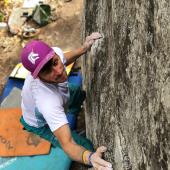
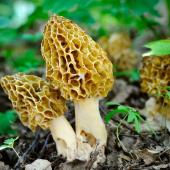
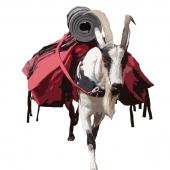
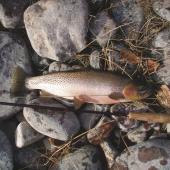


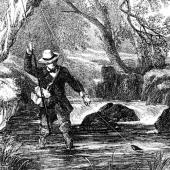
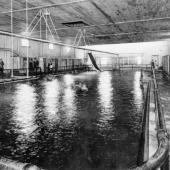
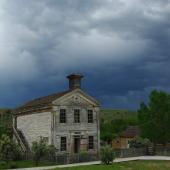
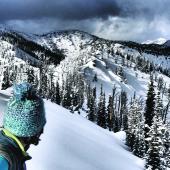
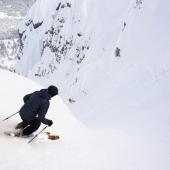

Leave a Comment Here